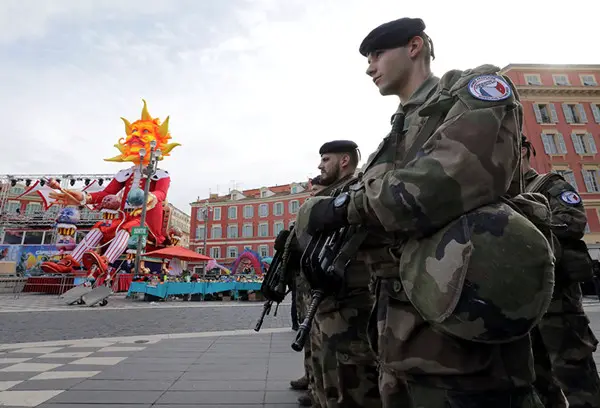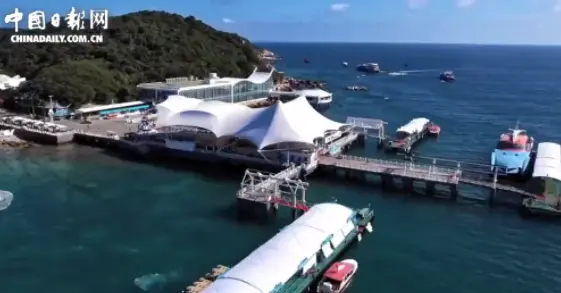With accesses controlled by 200 private security agents posted on 36 security checkpoints and 130 municipal police officers mobilized, the 133rd edition of the Nice Carnival opened in a less warm atmosphere.
The opening parades Saturday did not pass by the Promenade des Anglais as usual, where a lorry deliberately drove into crowds of people celebrating Bastille Day in Nice, a seaport city in southeastern France, on July 14, 2016, killing 86 people.
"It's less festive," Christiane, who was maintaining order in the stands, told Xinhua, adding security efforts this year were unprecedented.
"Before, the audience could go into the parades, snatch flowers from the floats, but this year they are only allowed to watch from a distance," said Christiane, who has worked for the carnival for more than 10 years.
Organizers of the Nice Carnival -- one of the largest in Europe that has attracted almost 400,000 visitors this year -- spent 300,000 euros (nearly 320,000 U.S. dollars) beyond the 6 million-euro (6.3 million-dollar) budget to reinforce security.
In order not to offend the sensitivity of the public, it is forbidden to wear a costume "which could be confusing," and no imitation of weapons is allowed, according to local media.
Despite the security alert, the charm of the carnival let visitors forget the threat of potential danger and many visitors came especially for the festival from neighboring countries.
Swiss audience Margaret came with her friends to participate in the carnival for the first time. "I didn't even think about the security issues. I simply come to feel the atmosphere and watch the colorful floats. I did not get disappointed," said Margaret, hopping with the music.
The theme of the two-week carnival "the King of Energy," which refers to different forms of energy such as electric, fossil and solar energy, was embodied by unique costumes worn by models throwing thousands of flowers to the audience.
During the parade, 17 allegorical and burlesque floats rolled by the Place Massena, a historic square in Nice, with street performers and different international musical troupes.
The Flower Battle, a tradition of the carnival, remained one of the highlights this year.
Around 3,000 flowers were used per float and almost 70 percent of the flowers were locally produced, which emphasizes the floral heritage of the region.
The flowers were distributed to almost everyone on site, making the Palace Massena a sea of flowers. People danced, chanted and cheered carrying bouquets of colorful flowers.
The grand celebration climaxed in the evening when floats of giant Donald Trump, president of the United Stats, and candidates for the upcoming French presidential election surprised the audience.
According to the tourism office of Nice, satirical style is what the French society needs sometimes.
Hiro, a Nice citizen who participated every year in the carnival, shouted with enthusiasm at the scene. He said although the atmosphere was affected by terror attacks, he felt safe with strict security measures and hoped visitors could restore confidence in his city.
The Nice Carnival has a long history. The term of carnival was mentioned for the first time in Nice in 1294. In 1873, the Festivities Committee was set up in the city and float parades began.
(APD)
 简体中文
简体中文






